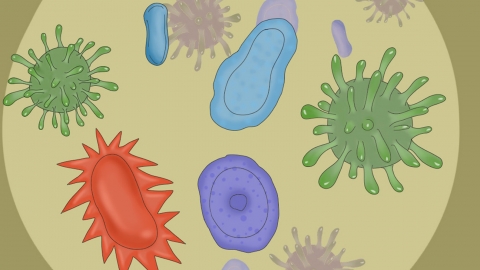How to completely cure genital herpes virus
Currently, there is no complete cure for the herpes simplex virus (HSV), but the condition can be managed and recurrence reduced through standardized measures. These generally include antiviral medication, local care during outbreaks, enhancing immunity, avoiding triggering factors, and regular follow-up monitoring. A detailed explanation is as follows:

1. Antiviral Medication: During an outbreak or the prodromal phase of a recurrence, patients should take antiviral medications as directed by a physician. These drugs can suppress viral replication, alleviate symptoms, shorten the course of illness, and reduce the risk of transmission. Even after symptoms subside, some patients may require intermittent suppressive therapy under medical guidance to decrease the frequency of recurrences.
2. Local Care During Outbreaks: Affected areas should be kept clean and dry during an outbreak. Gently washing with warm water is recommended, while friction or scratching should be avoided to prevent secondary bacterial infections caused by ruptured blisters. If ulcers develop, topical medications may be applied as directed by a physician to protect the wound surface and relieve pain.
3. Enhancing Immune Function: Maintaining a regular sleep schedule and avoiding excessive fatigue, engaging in moderate exercise regularly, and eating a balanced diet to ensure adequate nutrition can improve bodily functions and enhance immunity, thereby reducing the likelihood of viral activation and disease recurrence.
4. Avoiding Triggers: Excessive fatigue, high levels of psychological stress, common colds or fevers, and consumption of spicy foods may all trigger viral reactivation. These factors should be avoided in daily life. Emotional stability and healthy lifestyle habits should be maintained.
5. Regular Follow-up and Monitoring: Regular hospital visits for relevant examinations are necessary to allow physicians to evaluate the control of the condition and adjust treatment plans according to physiological changes. If symptoms worsen or new discomforts arise, prompt medical consultation and feedback are required.
It is important to understand that genital herpes virus is difficult to eradicate completely, so patients should not trust unverified remedies or pursue blind treatments. After diagnosis, patients should adhere to standardized management under the guidance of qualified medical institutions. Additionally, attention should be paid to personal hygiene, avoiding transmission of the virus during close contact, and maintaining a positive attitude toward managing the condition.





